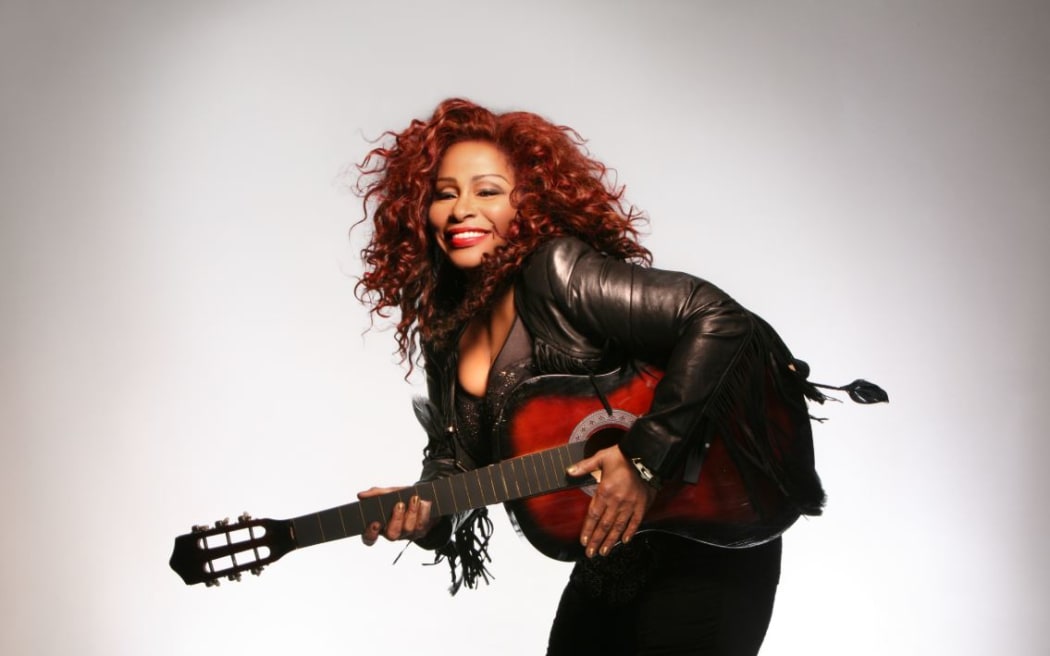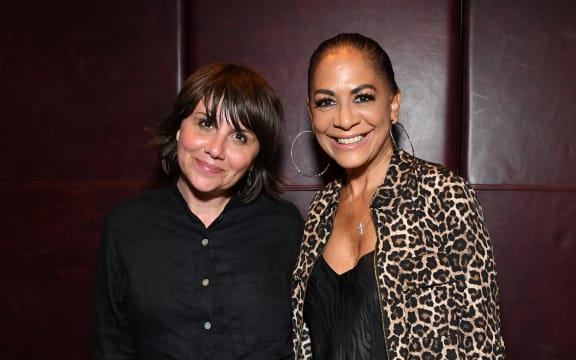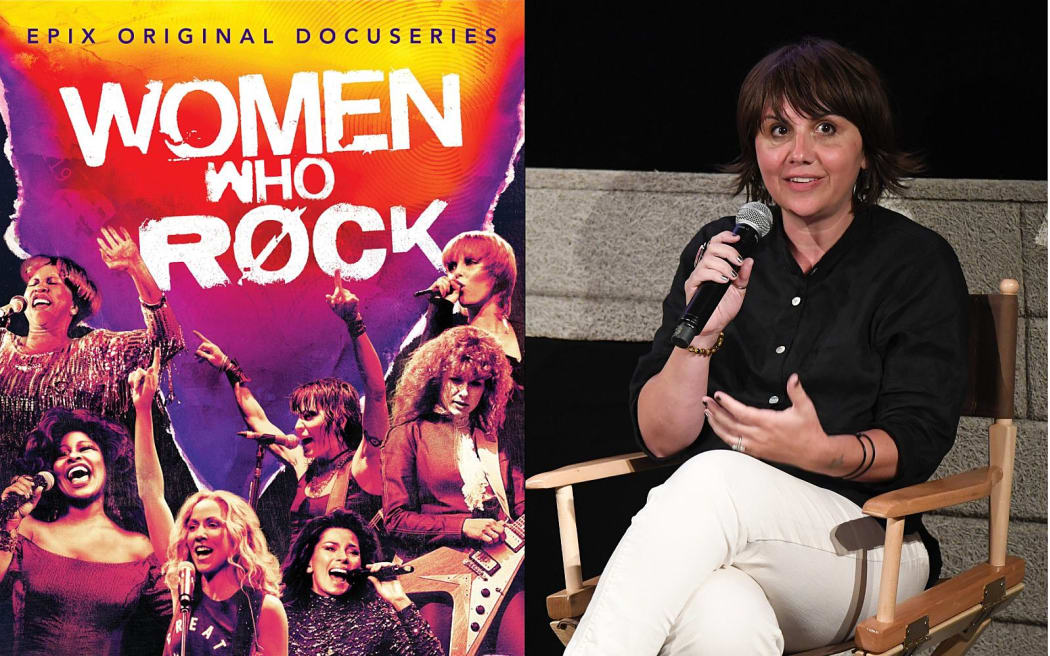
Chaka Khan. Photo: Supplied
A new documentary series about women in the music business - aptly titled Women Who Rock - reveals how the struggles faced by early pioneers like Nancy Wilson and Chaka Khan paved the way for modern stars like Taylor Swift to take control of their own destinies.
Their stories are heard in their own words, told to veteran music journalist Jessica Hopper, whose credits include Rolling Stone, the New York Times and Pitchfork.
"You know, there's 41 artists in this, and still, we weren't aiming to have it be, you know, a definitive history. It's not, and it's also not the Wikipedia history of women in rock," Hopper told RNZ's Music 101.
"I wasn't looking to make anything that was truly definitive or canon-making, you know. It was just all these women talking about their inspirations, their relationships with one another and really what gave them a sense of permission, of power, you know?"
Also featured in the series' four episodes are Pat Benatar, Chaka Khan, Joan Jett, Mavis Staples, Sheryl Crow, Courtney Love, Shania Twain and Kelis.
"When she's on the screen, you're just like, where is the Kelis documentary already? She is just, you know, just fantastically alive and so funny and just brings so much levity to the episode she's in."

Director Jessica Hopper and pop star Sheila E attend Women Who Rock screening at NeueHouse Los Angeles. Photo: Jon Kopaloff / GETTY IMAGES NORTH AMERICA / Getty Images via AFP
One of the stars of the show is Khan, who came to prominence in the 1970s and '80s.
"I never thought I'd get to talk to Chaka Khan, you know? I mean, she's elusive," said Hopper. "She's the white whale you know, so to speak, and you know, I got to talk to her for four hours."
Khan's fame coincided with the rise of the music video and the increasing sexualisation of women in pop and rock, a big focus of the series. Hopper said there was one particular moment that stuck with her.
"Debora Iyall, who is or was the frontwoman of Romeo Void, you know, the great new wave post-punk band and you know, one of the most visible indigenous women in the American music scene at that time. You know, she was a bigger woman, she was outspoken, her lyrics were really feminist, you know, she's a woman of colour. She's an indigenous woman...
"I started to say, what was your experience in the major label music industry like? She just choked up, started crying and she said, 'You know, it was racist, It was sizeist, it was sexist, it was homophobic, it was classist. And you know, I signed the deal and I walked out the door of the record label…'
"And she just thought, 'What have I done? What have I done?' And you know, her experience was hardly special, unfortunately."
"And that was really one of the things that was kind of this very tender balance through the whole series, because I think one thing is, you know, in the music press historically, there's always this idea… that women are kind of always this insurgent force coming from the outside, finally arriving, finally arriving and you know, I wanted to show women have always been here. But also I think when we focus on that... it forever puts them in the place of of retelling these traumatic tales, you know and kind of sometimes not moving beyond that."

Women Who Rock director Jessica Hopper Photo: Supplied
The series does move beyond that, particularly in the final episode when Hopper covers women who entered the public eye in the 1990s and beyond, such as Billie Eilish, Bjork and Gwen Stefani.
"In putting together this show, the way that these women survive so much and still have had hugely creative careers was deeply inspiring to me, but also if people watch the whole series, you can really see there is a shift. There's a shift between you know, the sense of - not just a sense of permission, but artistic and creative control, control of their image, control of their bodies…
"As Shania Twain kind of puts it in episode four… she was talking about watching Taylor Swift and others that have come in her wake fight the same battle she fought at the beginning of her career. You know, '87, '88, you know, early '90s, that her seeing these young women coming up in her wake and that they are fighting the same battles and winning."
She hopes the series, screening now on TVNZ+, shows "a sense of progress" and "profound sense of hope" for the future of the industry.
While there are not any New Zealand artists featured, there is one Hopper would like to have included.
"If I could have included a New Zealand band that was really important to me in there, if I could have somehow shoehorned it in... it's Look Blue, Go Purple. Hugely important band to teenage me... that's my New Zealand shoutout."

